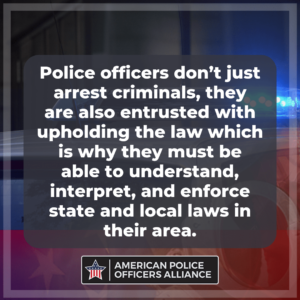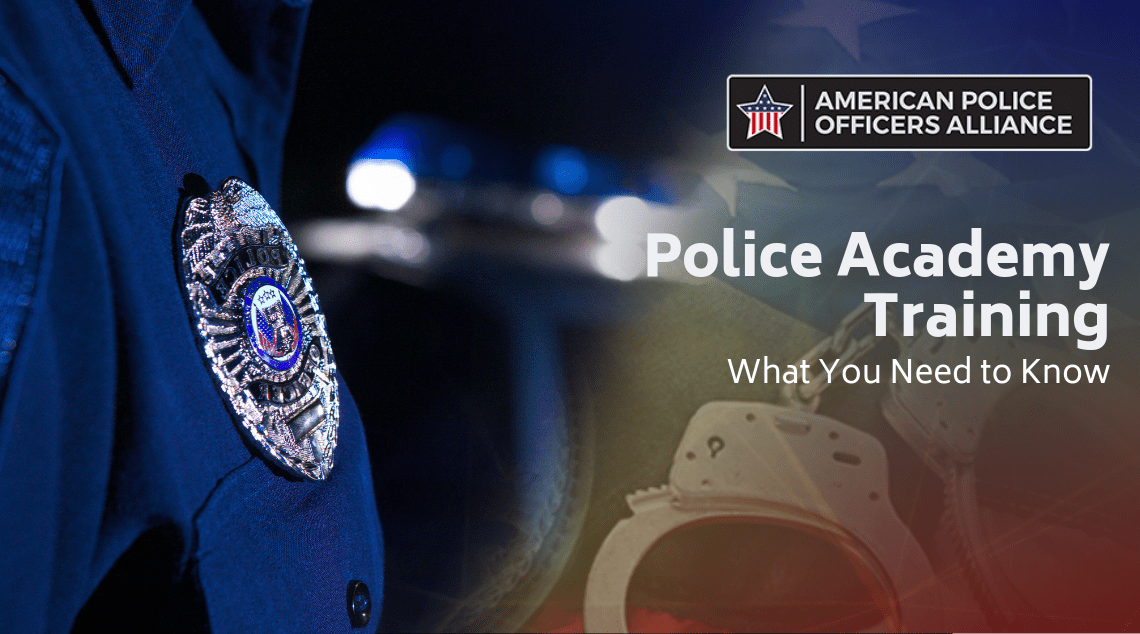Law enforcement agencies across the country help keep our communities safe and play a vital role in society. In order to get them ready for this important role, the training process they have to go through to become a police officer is far from easy. The training at the police academy prepares them for just about anything and everything that might occur during their career to ensure they are well equipped and well trained in order to serve and protect.
Most people don’t really know what type of training police officers go through during the academy. Making the public aware of what police academy training involves can be helpful to people who are interested in becoming a police officer or uneasy about the safety of their communities and the qualifications of their community’s officers.
What Does Police Academy Training Entail?
Police academy training involves educating, preparing, and training recruits in many different areas. It is important that the training is diverse in order to properly prepare officers for their day-to-day activities on the job and for the unexpected.
Most police academies have programs that involve both classroom-type settings as well as intense physical training. They also require a strict lifestyle to be adopted, such as abiding by strict rules pertaining to appearance, sleeping and eating schedules.

Physical training for someone in the academy is intense to say the least. Fitness tests are performed regularly in order to evaluate where each potential officer is at and how far they have come since the beginning. Academy training consists of body strengthening and running regimens to ensure that each officer can be ready to move quickly without much notice. There is also firearm training and range time to properly educate and train officers if they need to use their firearm. There may be additional weapons training, including training with tasers and pepper spray.
The classroom setting of police academy training involves educational courses regarding safety, psychology, local and state laws, protocols, and even some light medical knowledge. All of the academic training that takes place helps officers to become more knowledgeable about keeping themselves and their community safe.
How Long is Police Academy Training?
Every police academy is structured a little bit differently but at the end of the day, most of the policies are very similar. The average police academy requires recruits go through 800 hours of training before they can “graduate” and be sworn in. While 800 hours may only round out to be about 5 months if operating on a 40 hour work week, a lot of academies actually require about 6-8 months of total training.
Who Can Undergo Police Academy Training?
It’s hard to imagine that there would be stipulations on who could protect our communities, but there are a few important ones that were implemented with good intentions.
While each police department’s recruiting requirements vary, most require that the person be at least 18 to 21 years of age. It may be surprising to learn that no formal education other than a high school diploma or GED is typically required in order for a person to get hired as a police recruit. There are tests that are hiring tests including background checks, fitness tests, psych evaluations that may also need to be passed in order to be hired and offered a spot.
The Need for Police Academy Training
Police academy training is a necessary step in preparing police officers to deal with the physical, mental, and emotional aspects of the job. Police officers don’t just arrest criminals, they are also entrusted with upholding the law which is why they must be able to understand, interpret, and enforce state and local laws in their area. For these reasons, and many more, the police academy is an important step in the process of becoming a police officer.
The perception of police officers has been controversial recently, but more importantly, a new challenge is arising. Recruiting and retaining police officers has grown to be a big challenge among law enforcement. Why? Read the answer here.








